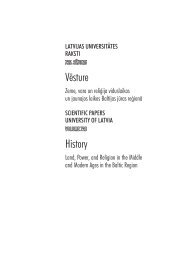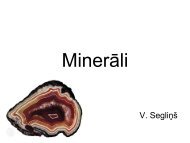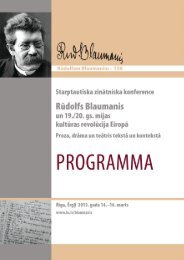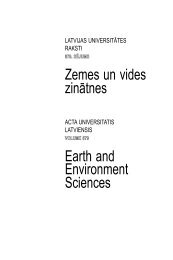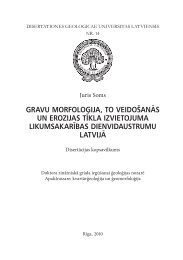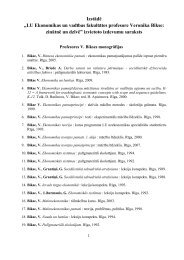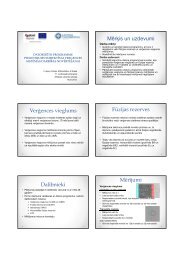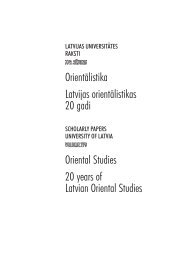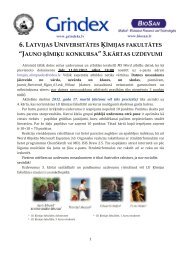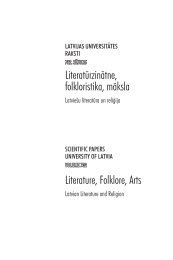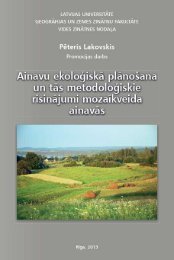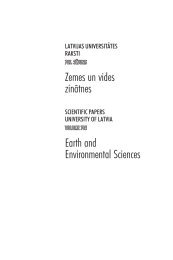Latgalistikys kongresu materiali, III. 2011. - Latvijas Universitāte
Latgalistikys kongresu materiali, III. 2011. - Latvijas Universitāte
Latgalistikys kongresu materiali, III. 2011. - Latvijas Universitāte
You also want an ePaper? Increase the reach of your titles
YUMPU automatically turns print PDFs into web optimized ePapers that Google loves.
Övdalian in the light of the European Charter<br />
Swedish Minority Policy was established in 2000, when Sweden ratified<br />
the Framework Convention for the Protection of National Minorities<br />
and the European Charter for Regional or Minority Languages. Since<br />
2009 minority rights have been further described in Språklagen ‘The Language<br />
Law’ and since 1 st January 2010 in Lag om nationella minoriteter<br />
och minoritetsspråk ‘Law on national minorities and minority languages’.<br />
According to those acts there are five minority languages in Sweden: Finnish,<br />
Yiddish, Meänkieli (Tornedal Finnish), Romani and Sami languages.<br />
Övdalian, which is so unique and severely threatened, has not yet been included<br />
in this list.<br />
A fierce debate whether Övdalian should be acknowledged as a minority<br />
or a regional language has been held for the past years. According to<br />
the definition, regional or minority languages are:<br />
— traditionally used within a given territory of a State by nationals of that<br />
State who form a group numerically smaller than the rest of the State's<br />
population; and<br />
— different from the official language(s) of that State;<br />
it does not include either dialects of the official language(s) of the State or<br />
the languages of migrants. (Charter 1992: 2)<br />
Övdalian seems to satisfy the Charter’s criteria as it has been spoken<br />
within Sweden since at least the 16 th century by a group which is numerically<br />
smaller than the rest of the population and it is unintelligible to<br />
speakers of standard Swedish. Inhabitants of Älvdalen have a long history<br />
and common traditions but still they have not been acknowledged as a minority<br />
group. The final criterion, which is probably taken into consideration<br />
although not stated explicitly in the Charter, is the problem of ethnicity.<br />
People in Älvdalen have never had aspirations to form a separate nation<br />
and have never considered themselves as non-Swedes. The only feature<br />
that distinguishes them from Swedes seems to be their language,<br />
Övdalian, which allows us to consider them a language group rather than<br />
an ethnic group.<br />
For and against Övdalian’s recognition<br />
In debates about Övdalian’s status in Sweden some arguments for<br />
and against are constantly being repeated. The opponents of uprising the<br />
status of Övdalian claim that its speakers constitute a small group, and<br />
they inhabit a very small area. Besides there is no common Övdalian, as<br />
159



